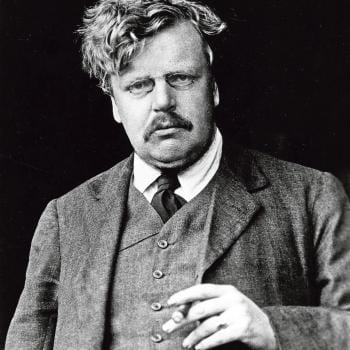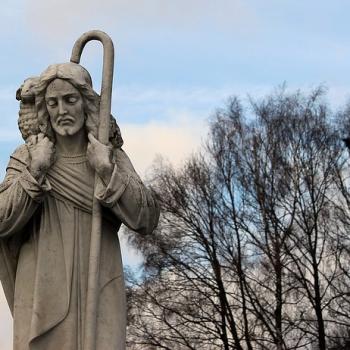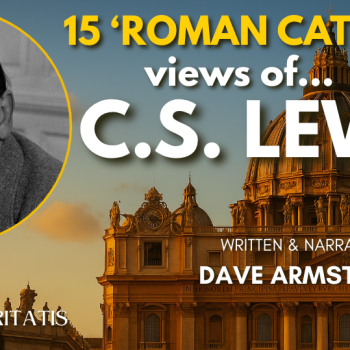The Confederate States of America claimed to be a Christian nation. They managed to succeed where today's Christian nationalists have failed. The Confederacy had a Constitution that recognized God. (When John McCain said in 2008 that the U.S. Constitution established America as a Christian nation, perhaps he was confusing it with the Confederate Constitution.) The leaders of the Confederacy had no qualms about claiming that God had uniquely raised the South up to do His work in the world. Christianity held an exalted and powerful place in Confederate culture.
As we have seen in previous articles in this series, during the Civil War northern clergy believed that their cause was ordained by God. Part of their mission in this conflict was to punish the South for seceding from the United States, a political community that was indivisible because it was created by God. But as Northern propagandists extolled the Christian virtues of their national Union and the spiritual superiority of their society over a sinful South in need of God's repentance, the religious and political leaders of the Confederacy were building what they perceived to be their own Christian civilization.
Indeed, the "Christian nation" theme was even more prominent in the South than it was in the North. Southerners were convinced that the Confederate States of America was a Christian nation. They viewed the Confederacy as a refuge for the godly amid the "infidelity" of the Union to which they once belonged. One hundred fifty years ago this month, Southerners prepared to engage in a war that would prove God was on their side. This mentality is clear in the Confederacy's decision to adopt the Latin phrase Deo Vindice ("With God as our defender") as its national motto.
Southerners looking for evidence that the Confederacy was a Christian nation needed to look no further than their Constitution. Unlike the U.S. Constitution, which does not mention God, the preamble of the Constitution of the Confederate States of America made a direct appeal to "Almighty God":
We, the people of the Confederate States, each State acting in its sovereign and independent character, in order to form a permanent and federal government, establish justice, insure domestic tranquility, and secure the blessing of liberty to ourselves and our posterity—invoking the favor and guidance of Almighty God—do ordain and establish this Constitution for the Confederate States of America.
Southern clergy were absolutely giddy over this insertion of such God-language. Benjamin Morgan Palmer, the minister of the First Presbyterian Church of New Orleans, called it "a truly Christian patriot's prayer." He blasted the "perilous atheism" of the U.S. Constitution, adding that its framers had been too tinctured with the kind of "free-thinking" and "infidel spirit" that was often associated with the "horror of the French Revolution."
Palmer described the ratification of the Constitution in these terms: "The American nation stood up before the world, a helpless orphan and entered upon a career without God." The Confederacy, however, was charting a godlier path. Its framers had made a conscious effort to avoid the scandalous secularism of the U.S. Constitution. When Palmer read the preamble of the Confederate Constitution, with its "clear, solemn, official recognition of Almighty God," he claimed that his "heart swelled with unutterable emotions of gratitude and joy . . . At length, the nation has a God: Alleluia! 'the Lord reigneth let the earth rejoice.'"
With a Constitution that recognized "Almighty God," it was not much of a leap for Southern clergy and politicians to affirm that the citizens of the Confederacy were the new chosen people of God. References to the Old Testament "covenant" between God and Israel were a staple of Confederate writings.
O.S. Barten, the rector of St. James Church in Warrenton, Virginia, invoked this theme in 1861: "In the gradual unrolling of the mighty scroll, on which God has written the story of our future, as fold after fold is spread before the nation, may there stand, emblazoned in letters of living light, but this one testimony: 'They are my people, and I am their God.'"
In an 1861 sermon to a group of Georgia militiamen, J. Jones began his defense of the Confederacy as God's chosen people with an appeal to the Old Testament book of Jeremiah, the prophet of the "New Covenant." Other clergy connected the Confederacy to similar claims made by 17th-century Puritans, even going as far as to reference John Winthrop's famous call for Massachusetts Bay Colony to be a "city set upon a hill." The Confederate government, under the leadership of Jefferson Davis, affirmed this special covenant with regular days of fasting and prayer.
Today's Christian nationalists like to talk and write about the ways in which the United States has morally suffered by abandoning its so-called "Christian heritage." They want the Bible back in schools and the government to promote Christianity. But I am not sure all of them would have embraced the Confederacy's attempt to establish a Christian republic. At least I hope not.
4/26/2011 4:00:00 AM





